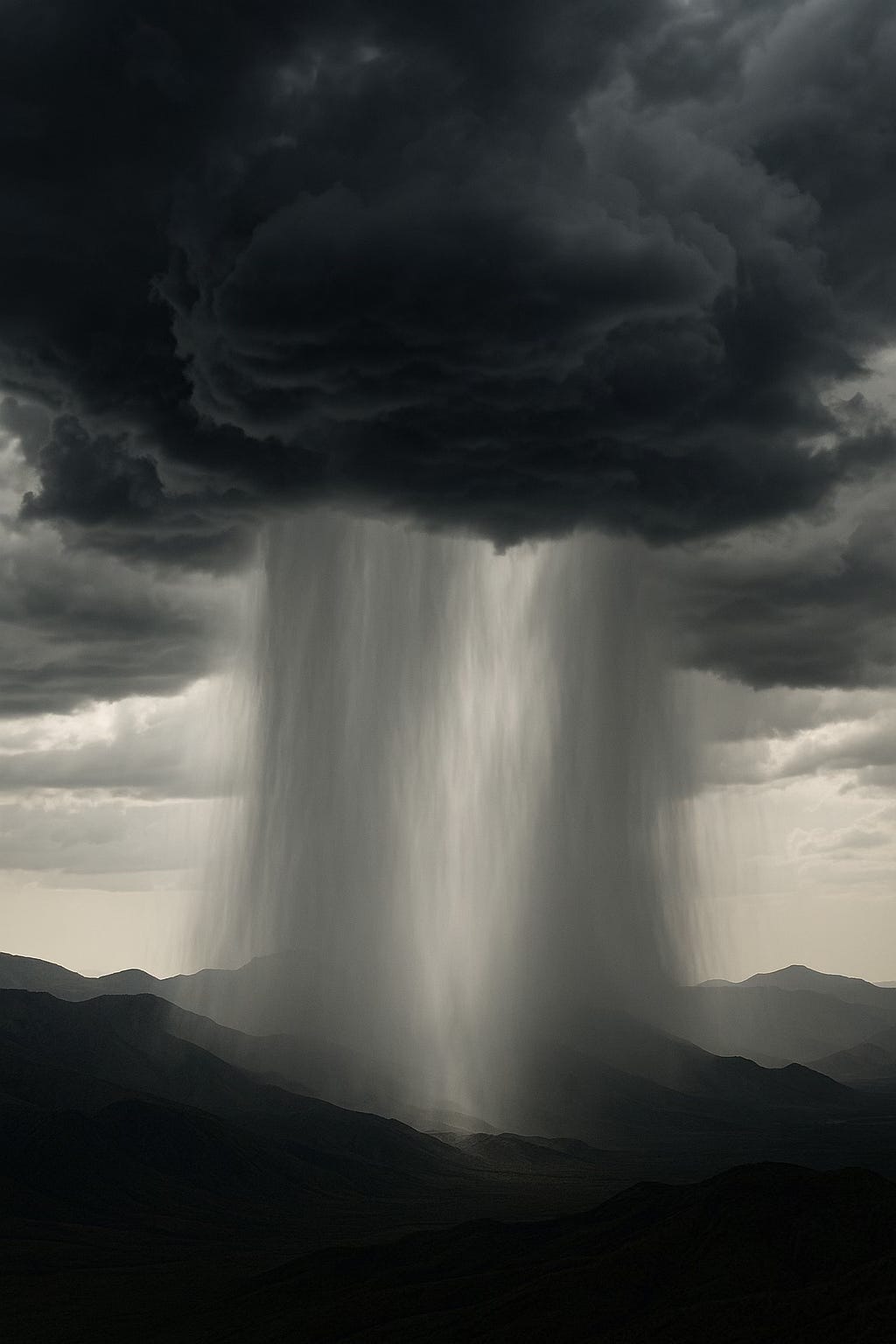What is a Cloudburst?
Why It Happens—and Where It Can Strike
These past few weeks, our country has been battered by floods. You may have heard the word cloudburst in the news — it almost sounds like science fiction, doesn’t it? But sadly, it’s all too real.
A cloudburst is when the sky suddenly pours an enormous amount of rain in a very short time — imagine a whole month’s rainfall in less than an hour, over just one small valley. It’s like the clouds couldn’t hold it anymore and just let go at once. That’s why villages in hilly areas get washed away so suddenly — there’s no time to prepare.
Why Do They Happen?
The science is simple, yet humbling. Warm air carries a lot of moisture. When it gets forced upward by mountains and suddenly cools, the water drops all at once. In recent years, as the air has grown warmer due to climate change, it carries even more moisture — and so these events are becoming more common, not less.
It’s nature’s way of reminding us: we are not in control.
Where Are They Most Dangerous?
Cloudbursts usually strike mountainous regions — Gilgit, Kashmir, Khyber Pakhtunkhwa, and across the Himalayas. Just this month, parts of Pakistan and India have lost hundreds of lives to them. Homes flattened, roads gone, families broken.
But here’s something to think about: while cloudbursts are a natural event, their impact is man-made. Building homes in dangerous areas, cutting down forests, poor planning — all of it makes the floods deadlier.
What Can We Do?
We can’t stop the rain — but we can reduce the damage.
As citizens and communities: we can spread awareness, avoid risky travel in monsoon season, and support each other with relief drives. Even small acts — donating, volunteering, checking on neighbors — make a difference.
As a government: there must be stronger early-warning systems, and a clear policy to temporarily stop tourism to fragile mountain areas during flood season. People love to visit these places, but no holiday is worth risking hundreds of lives.
Preparedness is protection.
A cloudburst teaches us that life can change in minutes. We can’t control the skies, but we can control how we respond: with knowledge, kindness, and responsibility.
If each of us takes even a small step — whether it’s planting a tree, helping a family, or raising our voice for safer policies — then we’re not powerless.
Stay safe, stay compassionate, and never lose hope.
“Floods remind us that while water can wash away homes, it can never wash away the strength of a united community.”
Away from storms and heavy skies, I want to share something close to my heart. My wife has been creating handmade clay jewellery under her brand Noon Gunna. Each piece is crafted with care — simple, earthy, and timeless. It’s creativity at its purest, and I’m so proud of the way she’s turned her passion into something tangible.
If you’d like to see her latest designs, you can check them out here: Clay Jewellery
May Allah keep us all safe and responsible.
— Dr. Haris Ghole




